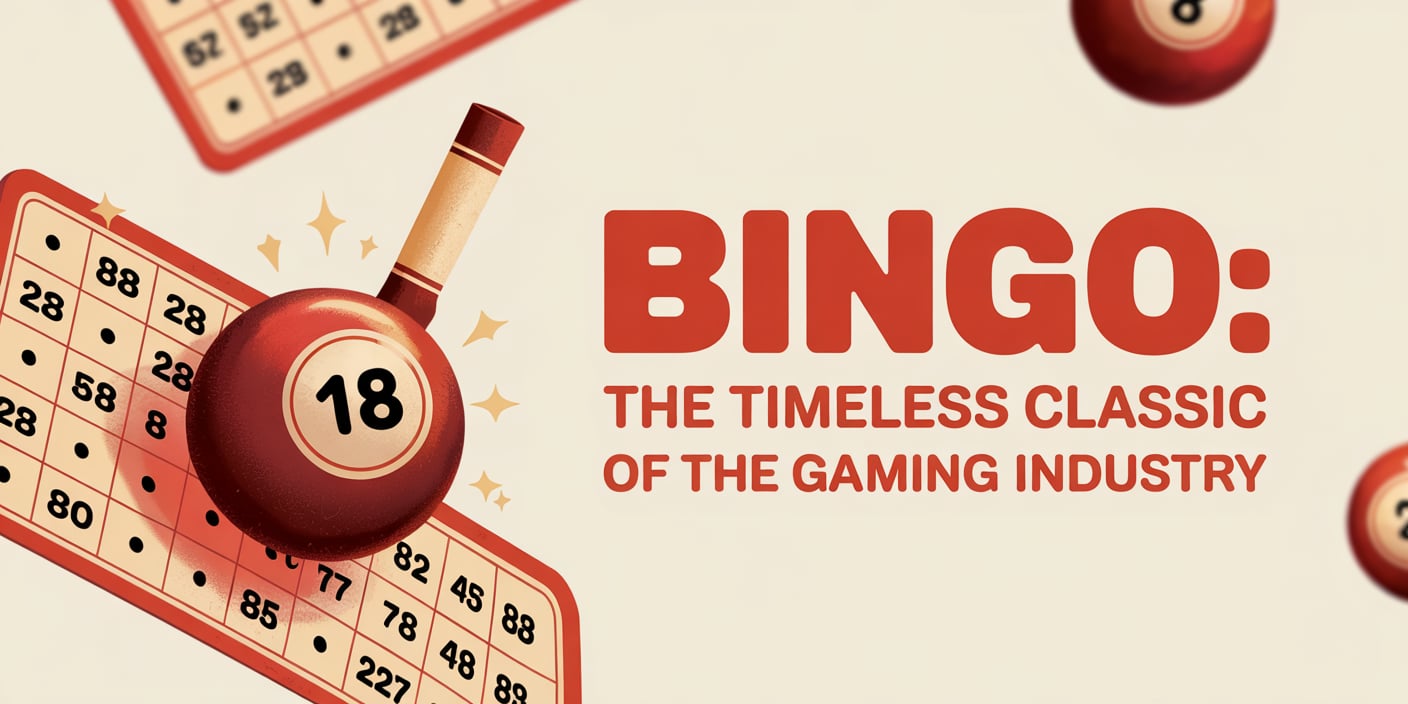Modern online casino operators aim to offer a wide variety of entertainment — slots, live dealer games, lotteries, and table games. Yet, no reputable gaming site is complete without one legendary classic everyone knows — bingo. Whether you're exploring independent platforms or part of broader bingo site networks, like Uk-bingo-sites.co.uk, this game remains a staple attraction across the board. In this article, we’ll take a closer look at this ever-popular game.
The History of Bingo
What comes to mind when you hear the word “bingo”? Perhaps a lively group in a community hall, a cosy pub where players sip pints and mark their cards, or maybe even a televised draw. But bingo has come a long way from those traditional images.
What Is Bingo?
Bingo is a game of chance with similarities to the lottery. The basic concept is simple: players receive a card with numbers, and a caller randomly announces numbers. If all the drawn numbers match those on a player’s card, they win — but only after shouting out “Bingo!” loud and clear.
Origins of the Game
Bingo has roots in several European countries and has been enjoyed by people from all walks of life. Interestingly, the name "bingo" came about by accident. In North America, players used beans to cover numbers on their cards and would shout “beano” when they won. A toy salesman overheard it incorrectly as “bingo” — and the name stuck.
Bingo’s Evolution
Over time, bingo evolved with new formats and thousands of unique card combinations. The game spread from social halls and churches to mainstream venues and online platforms. Now, it's a staple in both physical and digital gaming environments.
Online bingo has opened the door to even more variants and a broader audience, giving players the chance to enjoy the game anytime, anywhere.
Types of Bingo
Bingo comes in many forms. While the classic version uses 75 balls, other popular variations offer different game speeds, card layouts, and winning patterns.
75-Ball Bingo
This is the standard version widely played in North America. The cards are 5x5 grids with 24 numbered squares and a free centre space. The 75 numbers are divided into five groups, each linked to a letter in the word BINGO.
30-Ball Bingo
Also known as "speed bingo", this fast-paced version is perfect for those short on time. It uses a 3x3 card and only 30 balls, making for a rapid and exciting gameplay experience.
90-Ball Bingo
The most popular version in the UK. Cards have a 3x5 layout with 15 numbers. Players aim to complete one line, two lines, or a full house. This version is a staple in bingo halls across the country and brings a unique layer of excitement with multiple winning patterns.
80-Ball Bingo
This version blends elements from both UK and US bingo styles. It uses 4x4 cards and features creative winning combinations like rows, columns, diagonals, and special patterns. It's a strategic and fast-paced option for those wanting something different.
Bingo Variants
style="font-size: 14px"Bingo has adapted to suit all kinds of players and cultures. Here are some creative versions that put a twist on the classic rules:
-
U-Pick-Em – Instead of pre-generated cards, players choose their own numbers.
-
Death Bingo – The last player to complete their numbers wins, flipping the usual goal.
-
Bonanza Bingo - Participants begin with multiple numbers already drawn, the jackpot steadily grows during the game.
-
Blackout (Coverall) – To win, players must mark off every square on their card.
-
Math Bingo – Used in education, where solving maths problems reveals the numbers to mark.
-
Horse Race Bingo – Combines elements of horse racing with bingo, where each square represents an event or action.
-
Facebook Bingo – Played within online social groups, bringing community interaction to the forefront.
Bingo Beyond the Casino
In the UK, bingo is not just a gambling game — it’s a beloved social tradition. Community centres, pubs, and religious groups often organise bingo nights to bring people together and raise money for charity.
Interestingly, bingo is sometimes permitted even in jurisdictions with strict gambling laws, provided it’s hosted by non-profit organisations. In such cases, licensing may not be required, and underage players may even be allowed under certain conditions. However, these events are still carefully regulated. In the UK, the Gambling Commission sets limits on prize values and the maximum players can be charged per session.
Bingo in Education
Bingo has also found its place in classrooms — especially in subjects like maths and language learning. Teachers use bingo-style games to make lessons more engaging and interactive, helping students improve memory and problem-solving skills in a fun and informal way.







